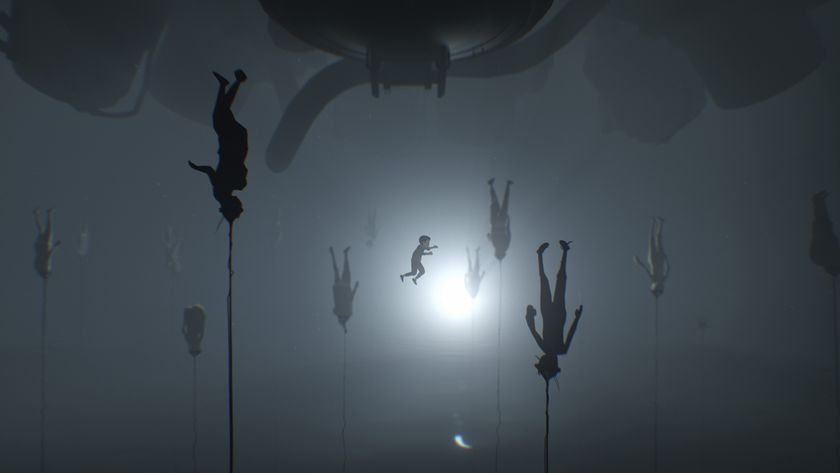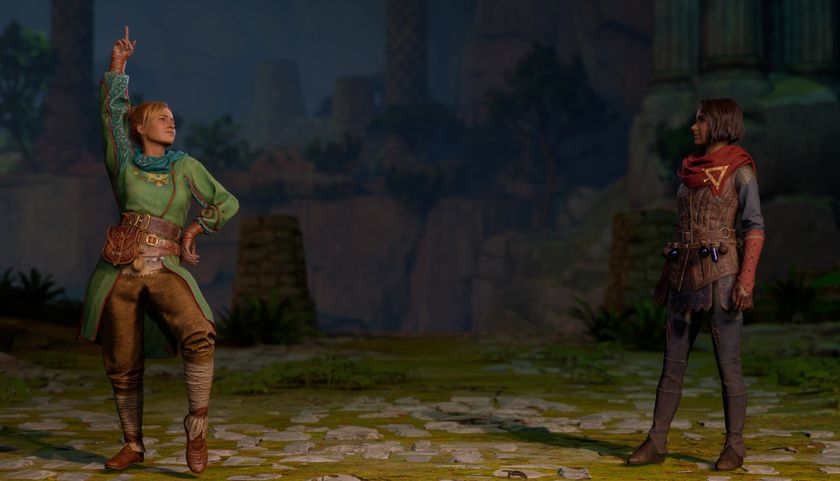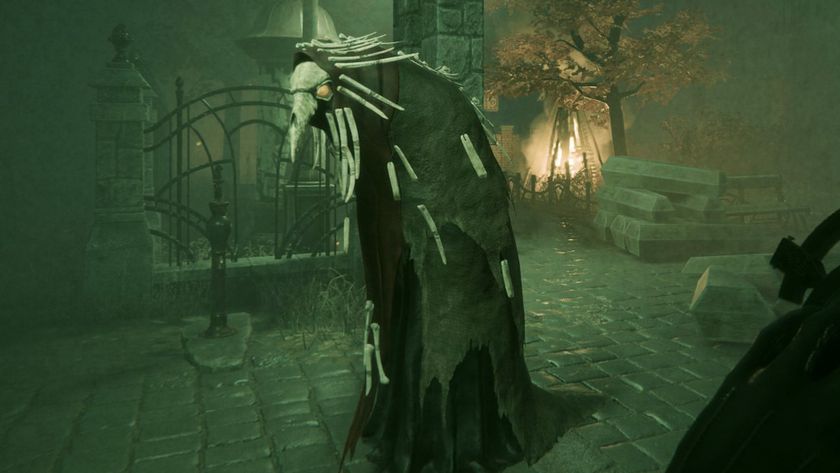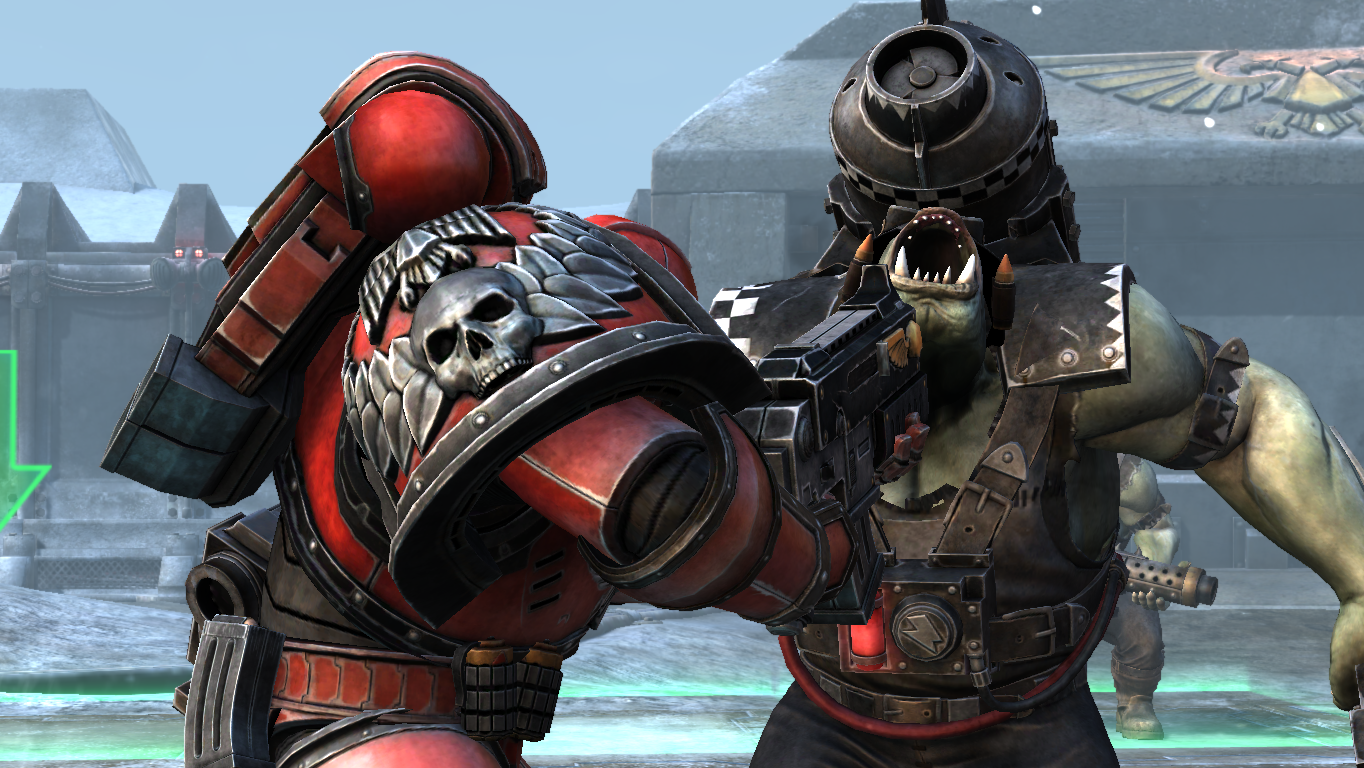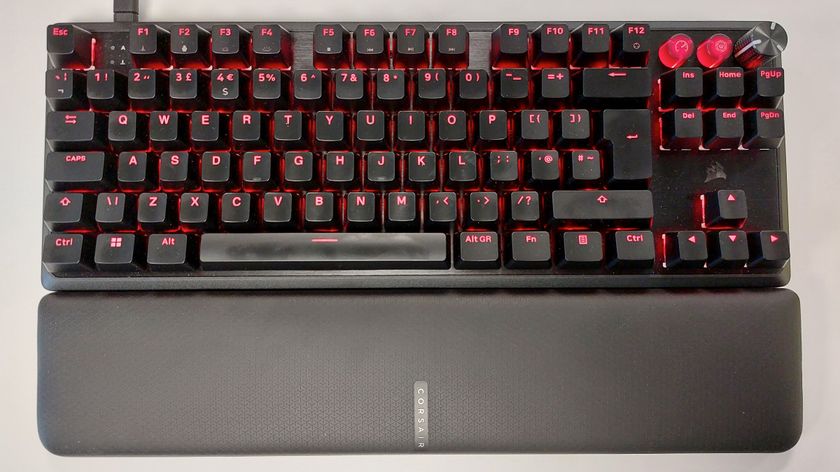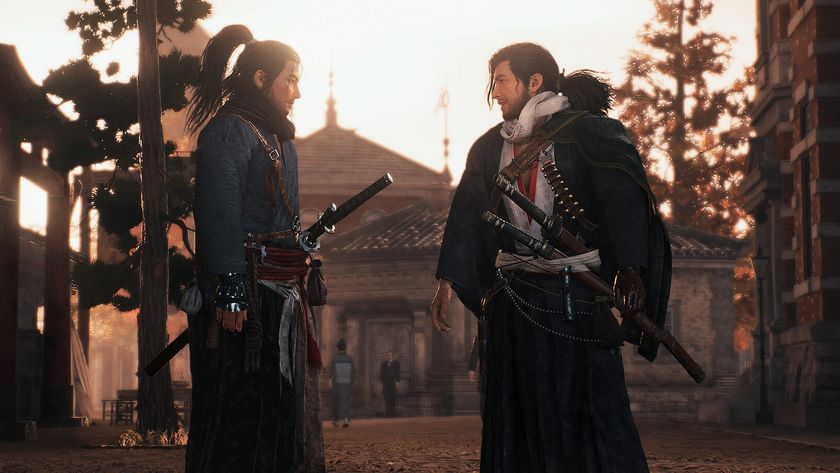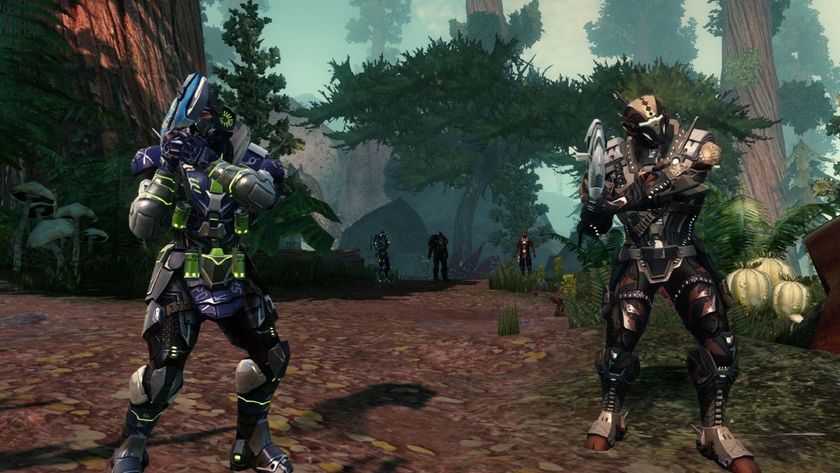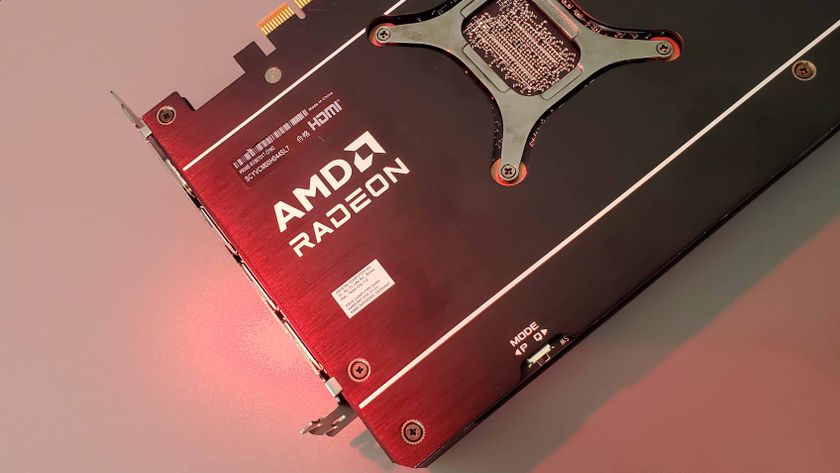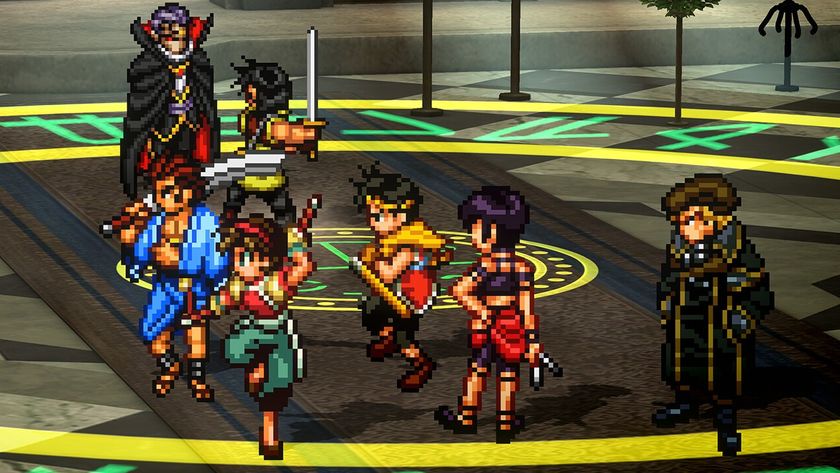Our Verdict
A cute chess set for 40K fans and an unusual twist on the classic game, but skip the campaign.
PC Gamer's got your back
What is it? Battle Chess given a veneer of strategy game, with Space Marines.
Reviewed on: Windows 7, Intel i7-3610QM @ 2.30GHz, 8GB RAM, AMD Radeon HD 7600M
Price: $15/£11
Release date: Out now
Publisher: Hammerfall
Developer: Hammerfall
Multiplayer: Competitive two-player, online or local
Link: Official site
In normal chess moving a knight out is a safe early move. In Regicide, I whip my knight into the midfield and into range of the boltguns carried by my opponent’s pawns. That knight does not last long.
Regicide is two games in one. The first is chess but with characters from Warhammer 40,000, like the themed sets you see in the windows of board game shops only instead of the Mad Hatter and Queen Of Hearts it has Space Marines and Orks. ‘Classic mode’ lets you play normal chess against the AI or other humans, and while it might not be the best chess game ever made, like Battle Chess the pieces animate into entertaining miniature duels that make up for otherwise basic features. Those animations are as brutal as you’d expect given the setting—watching pawns blast each other to ribbons of gore livens up boring moves, at least until you’ve seen them all.
But then there’s the other game. 'Regicide mode' keeps the rules of regular chess, even advanced stuff like castling and en passant captures, and sprinkles a light strategy game on top. After each turn plays out like it would in normal chess you enter the initiative phase, spending points to activate special abilities. A piece might gain a defensive shield, shoot at an enemy, use a psychic power, or throw a grenade. Each piece has hit points to be chipped away or reinforced by these abilities, but the initiative phase initially seems less decisive than the actual chess played in the movement phase. There, hit points don’t apply and one piece simply takes another in the ordinary way, albeit while eviscerating it with a chainsword or detonating it with psychic lightning.
Regicide can be played as a one-off skirmish against the computer or a human opponent (online or hot-seat), or through a single-player campaign with a surprising amount of narrative development. It opens with a moody cutscene out of Dead Space and each of its 50 levels has a talking-heads intro as the Blood Angels chapter of Space Marines strive to take Hethgar Prime back from Orks of the Goff clan. These levels are like puzzles in chess books, giving you a set of pieces in an unusual layout and then, for instance, challenging you to take the queen without losing your own, or preventing your opponent promoting a pawn.
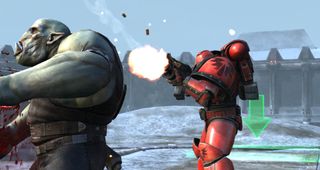
RNG-icide
This is where the pure abstraction of chess butts heads with the random-chance-to-hit tactics game. A level about getting my Marine Captain (king) across the board with only a squad of Tactical Marines (pawns) for protection drove me crazy as multiple attempts ended in disaster. It’s hard to know whether I’ve chosen a poor strategy or just lucked out when the king falls to a critical hit off a 52% chance, and that makes it hard to know whether to alter my plan or do the same thing again and hope for better luck.
It doesn’t help that campaign mode enables stalemate, a chess rule that means a match ends in a draw if either side can’t make a legal move. In chess this makes endgames tense as a dominant player still has to worry about their opponent forcing a draw. In Regicide’s campaign, with limited pieces and options, often with movement-blocking terrain on the board, sudden stalemates moments before you win are infuriating. But it’s just as rage-inducing to play a solid game of chess and then be defeated by a lucky shot in the initiative phase. It makes me want to flip the table: “Oh, I thought we were playing chess here!”
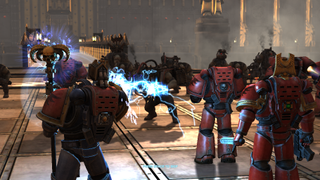
And yet, playing online, I find myself using the tactics of Regicide to win matches with glee. I said earlier the special abilities initially seem underwhelming, and they are inefficient compared to just taking a pawn with a knight, bish-bash-bosh. But while individually weak, combining abilities makes all the difference. Defeating players who understand actual chess—you can tell because they castle—by following the armor-sapping Kunnin’ Gits with the Ork bishop’s ability to shoot twice is grimly satisfying. Games feel close and I’ll take every advantage I get. Though sometimes it takes minutes to find a player, the match-making seems to work well. (There’s no chat client, which means nobody shouts abuse but simultaneously there’s no way to berate a player who draws out their turns to the last second of the three-minute turn limit.)
As the kind of 40K nerd who recognizes Regicide as the chess variant played in the official novels while also realizing this game doesn’t resemble the descriptions of it, who knows the Blood Angels sometimes go into blood-drinking frenzies (and maybe eat brains), I felt obliged to play the campaign to see its story out. It’s the weakest part of Regicide though, even with voice actors familiar from the Dawn Of War series and comedy Orks named Rosenkrump and Gobstern.
It’s better in skirmish mode, whether against the AI’s harder difficulties or actual people, where it becomes a kind of “chess plus”. Purists may see its layer of tweaks as an adulteration; to me they’re enough to reinvigorate my interest, tempting me to dig out that old teach-yourself-chess book to brush up on my game. It doesn’t say anything about boltguns.

This hardly ever happens down at the chess club.

Emperoricide doesn't have the same ring.

This red mist used to be somebody.

In the grim darkness of the far future, white moves first.

I thought this was a friendly match.
A cute chess set for 40K fans and an unusual twist on the classic game, but skip the campaign.

Jody's first computer was a Commodore 64, so he remembers having to use a code wheel to play Pool of Radiance. A former music journalist who interviewed everyone from Giorgio Moroder to Trent Reznor, Jody also co-hosted Australia's first radio show about videogames, Zed Games. He's written for Rock Paper Shotgun, The Big Issue, GamesRadar, Zam, Glixel, Five Out of Ten Magazine, and Playboy.com, whose cheques with the bunny logo made for fun conversations at the bank. Jody's first article for PC Gamer was about the audio of Alien Isolation, published in 2015, and since then he's written about why Silent Hill belongs on PC, why Recettear: An Item Shop's Tale is the best fantasy shopkeeper tycoon game, and how weird Lost Ark can get. Jody edited PC Gamer Indie from 2017 to 2018, and he eventually lived up to his promise to play every Warhammer videogame.
